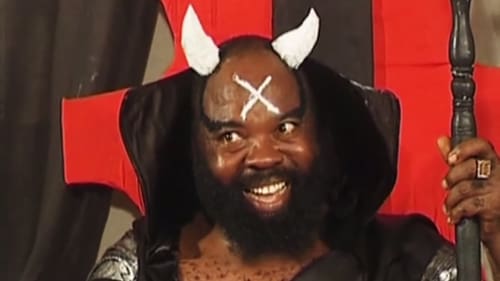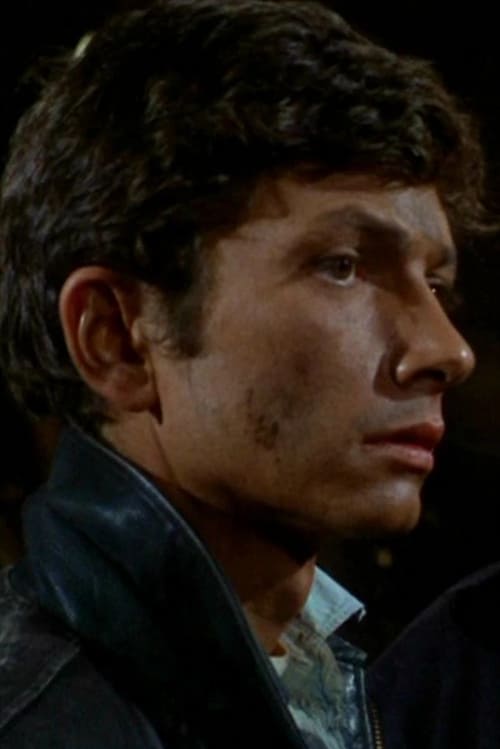The Emperor of Time (2016)
Genre : Drama, History
Runtime : 7M
Director : Drew Christie
Synopsis
The strange and sordid tale of Eadweard Muybridge, the man who accidentally invented motion pictures. The film is told from the point of view of Muybridge's abandoned son and viewed completely through a nineteenth century early cinema contraption called a mutoscope.

With the complicity of a painter, an elderly man recovers youth and manages to wander through paintings.

An animated short where no real story is being told and the perspective is constantly shifting.

Lucifer sends his trusty minions out into the world to lead the good folk of Nigeria unto temptation in order to lock them into his cage. The good pastor Lazarus who has noticed the signs, realizing that hell is about to be unleashed on Earth, sets about righting wrongs through the power of prayer.

Utterly astounding, iridescent sand animation from Aleksandra Korejwo based around Bizet's Carmen.

The boisterous and cheerful lives of the residents of Cameroon are barely dented by incursions of supernatural power in this humor-filled rendition of traditional folk tales in modern guise. In the story, a cheerfully naughty girl crosses paths with a witch who has the power to satisfy her curiosity about men by changing her into a young man. She then becomes one of the boy suitors for the amorous attentions of a policeman's daughter. Some of the men have unusual names and even odder magical gifts: one of them has the ability to make a man's genitals disappear when he shakes hands with him.

A gifted poet checks into a Gothic hotel in hopes of meeting the woman with whom he has long been enamored. He is surrounded by a variety of offbeat characters like the hefty homosexual cook, shadowy clerks, snooty waiters, and valets prone to violence. He finally meets the woman of his dreams only to lose her and ultimately meet with tragedy.

Two young Scots boys travel to school to find that one is offered on by a girl. Despite his nerves his older friend teaches him how to kiss and develops his confidence with surprising results!

Historically, the cinema close-up was initially employed to convey emotions through facial expressions. But soon filmmakers also began focusing their attention on hands. Using film extracts, Farocki explores this visual language, its symbolism, Freudian slips, automatisms and its music. Often, hands betray an emotion which the face tries to dissimulate. They can also function as a conduit (exchanging money) or witness to a form of competence (work).

Collected as part of the Fluxfilm Anthology (a multi-reel compendium of 37 short films assembled by Fluxus founder and central operator George Maciunas), One captures the lifespan of a single match recorded at 2,000 frames per second using a 16mm high-speed camera. The frame rate is then decelerated to the standard 24fps for presentation. The film emphasizes each gesture, sway and flare of flame as the small pinewood carrier ignites across the landscape of the filmstrip and screen, signalling the drama and poetics of this ”minor” event before the fire is extinguished. One also stands as an unassuming beacon, immortalizing on film the essence of some of Ono’s early concerns as an artist. At the slightest touch of fire, they burst into flame. Strike everywhere. Strike often.

A descrition of a game between two teams where one of the teams change the rules.

The story of Cinderella is modernised. Cinderella dreams of clouds and ends up fleeing by plane with her Prince Charming. The image is animated simultaneously at various speeds (decor, moving elements, characters) in connection with the sound tape played by Georges Schwizgebel on the piano. It is an intelligent variation on a well-known story with which the viewer can identify

Popeye and Bluto are, believe it or not, pals and partners in a moving company. (Maybe it's because Popeye isn't squinting here.) Anyhow, Olive has made the mistake of hiring them. She hasn't finished packing yet, so the boys, smitten as soon as she answers the door, compete to help her. Once packed, they compete to move more impressive piles of her belongings. Popeye easily wins these contests, even though Bluto locks him in the van at one point. At the end, Bluto socks Popeye into the piano, then into a table; though he hardly seems to need it, Popeye still eats his spinach, then thrashes Bluto.

Popeye takes Olive roller skating in a rink. She's never skated before, so he has to teach her, and she's not a quick learner. Before long Olive ends up outside the rink, rolling wildly out of control.

A lonely woman sends off for a special mail-order package.

The film chronicles filmmaker Joel DeMott, significant other/film partner Jeff Kreines and filmmaker Mark Rance as they head to Michigan to make a low budget horror film.

The story of a young deer deceived by appearances, or how a good deed in haste can be the cause of a tragedy.

The film starts by a visit to bucolic Normandy before the events. This peaceful atmosphere is shattered by Operation Overlord, minutely described in the second part of the documentary. The landing on D-Day and the ensuing battles and bombings martyr the peaceful area giving the earth thousands of body instead of seeds. In the last part, the dreadful aftermath of the steel storm is shown both with sympathy for the victims and hope for the future, since all these sacrifices, whether military or civilians, have not been in vain.

Two men are on the verge of making love, but an old neighbor does everything she can to ruin their adventure.

Loosely following the Greek myth of the Flight of Icarus, Georges Schwizgebel opens his directional career with Le vol d'lcare, a short animation of LED lights.

Young Ursula plays in a tree and ruins her fancy dress. Her elderly mother teaches her a cruel lesson about whether things can ever be mended; what Ursula learns about how to behave may not be what her mother intended.









